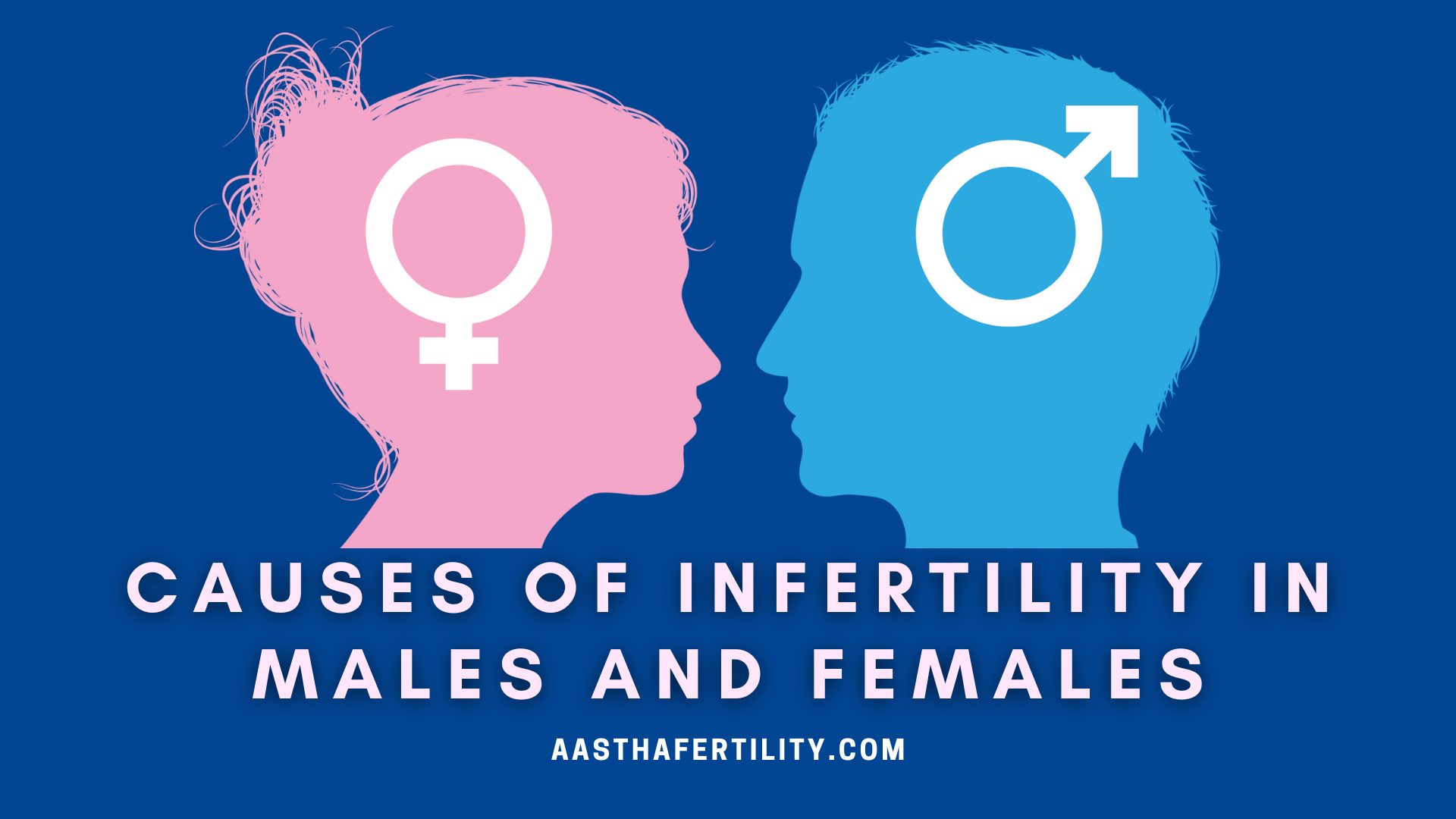Table of Contents
ToggleIf you are also an unfortunate one undergoing cancer treatment and want to conceive in the coming years, you should consider fertility preservation.
Fertility preservation is all about freezing elements suitable for conception, enabling a successful pregnancy by preserving sperm, eggs, and reproductive tissue for future pregnancies.
Fertility conservation is an excellent treatment option for 30-year-old men, women, and cancer sufferers. Transgender couples who want to bring a new member to their family can also resort to fertility preservation.
Reproductive organ and breast cancer treatments like chemotherapy, immunotherapy and radiation therapy permanently damage eggs, sperm, and reproductive organs. This can make it more difficult or impossible to get pregnant in the future.
If you or your partner have been diagnosed with cancer and are going through therapies, you might be concerned about your fertility. Don’t worry! Instead of crying over what is lost, it is better to do something to preserve your fertility instead. Aastha Fertility preservation ensures that you’ve got a shot at having a baby, even if you have cancer.–IVF specialist Namita Kotia
Fertility preservation options allow cancer patients to freeze their eggs and sperm, allowing them to have children after their cancer treatment. You can have a free consultation with the doctor about your fertility preservation options.
If you consider fertility preservation surgery as part of your cancer treatment, you must know the procedure and its cost. Moreover, effective treatment methods for fertility preservation are different for men and women, so let’s see which fertility storage options you can use for future conception.
Cancer Treatment Effects on Fertility
Cancer is a disease characterized by unregulated cellular proliferation; this results in the uncontrollable growth of cells, making it challenging to live and causing pain. In the case of cancer, one of the biggest concerns is fertility. Although the treatment depends on various factors such as type of cancer, stage of cancer, and other systemic diseases, some standard cancer treatments affect a patient’s fertility. The most common ones are:
Chemotherapy:
Older women are close to sterility as compared with younger women undergoing chemotherapy. At the same time, experiencing chemotherapy radiation or drug and dosage of treatment like cisplatin and alkylating can affect the ovaries to work.
Reproductive Organ Removal Surgery:
Most fertility-protecting surgical procedures are done to prevent accidental and deliberate sterilization. The most common procedure is vasectomy, in which a man’s vas deferens is cut to avoid sperm from entering the urethra. Another procedure is tubal ligation, in which a woman’s fallopian tubes are blocked, tied, or cut to prevent eggs from being carried to the uterus.
There are a number of surgical procedures that involve the removal of reproductive organs, and 60% of men and women who have undergone these types of operations go on to use some form of fertility protection.
It is the right of every woman to have control over what happens to her body. This is one of the most important reasons for opting for IVF treatment.
Radiation:
Radiation therapy is a cancer treatment that delivers high radiation levels directly to the cancer cells to destroy them. It is usually used with traditional chemotherapy, surgery, or biological therapy. While radiation therapy can be used to treat many different types of cancer, it is commonly used to treat people with cancer of the cervix, head, and neck, testicles, vagina, vulva, penis, esophagus, and thyroid.
Radiation cancer treatment can affect your fertility, but using our latest fertility preservation treatments like sperm cryopreservation, embryo cryopreservation, octane cryopreservation can preserve fertility and allow conception for infertile couples.
We are proud to announce that we also facilitate the storage of frozen embryos and cryopreservation of sperm and eggs, available for use in in-vitro fertilization (IVF) treatment. Storage of frozen embryos is common during a couple’s unsuccessful attempts to conceive through traditional IVF and intrauterine insemination (IUI). The cost of frozen embryo storage is added to the IVF treatment fee if you choose to use this service. Call us now to know the exact cost.
How can Women Preserve Fertility Before Cancer Treatment?
Cancer is cancer… Many types of cancers affect women adversely. Breast cancer is the most common cancer among women, while overall, lung cancer kills more women than any other cancer. A bulky uterus in women can also be a sign of cancer. Cancer is a deadly disease that can affect anyone at any time, anywhere. It’s a big problem, but with the right approach, women with cancer can find solutions to maintain their fertility and protect their family’s future.
Apart from cancer, many other disorders affect women’s fertility, such as PCOD and endometriosis.
Cervix removal by surgery:
To diagnose early-stage cancer of the cervix, the cervical conization, which is a cone-shaped part, is surgically removed, and the remainder of the cervix is preserved. In addition, the surgeon can wholly or partially remove the connective tissue of the uterus, which can reduce the risk of cancer spreading.
Embryo cryopreservation:
Embryos can be cryogenically preserved for years, with over 90% of them surviving the thawing process used in In Vitro Fertilization. In other words, cryopreservation is a viable alternative to either IVF or traditional embryo transfer.
Oocyte cryopreservation:
In this egg-laying process, the fertilized eggs are harvested and deposited as the female egg cannot even withstand the freezing point and soon loses its fertility. The oocytes can be viable for decades at a subzero temperature. They include eggs, immature ova, or oocytes and can be re-frozen and stored indefinitely.
Ovarian transposition:
This is a surgical method to fertilize eggs externally. After surgery, eggs are delivered to the abdomen, and radiation is generated externally through a tube connecting the abdomen with the vagina. Although this method is less efficient than IVF, it is highly effective when used in conjunction with IVF, leading to an overall conception rate of about 60% (IVF alone has only about a 30% success rate)
What Procedure do Men follow to Preserve Fertility?
We have seen fertility issues caused by other processes that damage sperm cells, such as chemotherapy and varicoceles (a condition where a man has enlarged veins in the scrotum).
Well, many people believe that men can never get cancer. This misconception is quite a common myth. A man can get cancer in many parts of his body, including his testes. That’s why men should protect their fertility by using a good strategy like radiation therapy and sperm cryopreservation.
Sperm cryopreservation:
It is the process of keeping the sperm for a long time, which facilitates its use in the future. Sperm is stored safely in a sperm bank or fertility hospital and can be removed for use when needed.
Radiation shielding:
In this procedure, small-sized shields are placed over the testicles to protect them from radiation exposure and radiation effects during treatment.
Health Risks a Baby Might Suffer from Being Born Through Fertility Preservation?
Although the risks of congenital disorders are infrequent, it is essential to keep an eye out for lung and respiratory issues. Other mental and psychological disorders can occur in children whose mothers have had uterine cancer. For example, if the mother was irradiated, her child may develop an illness or condition such as cerebral palsy, mental retardation, or autism.
When Should I Consult with My Doctor About Fertility Preservation?
If you want to maintain your fertility after cancer treatment, talk to our fertility specialist before treatment.
Although your fertility can be significantly affected by even just one therapy session. It would be best if you asked our gynecologist the following questions:
- Should You Think About Delaying Cancer Treatment?
- How your treatment will involve fertility
- How can you avoid risks during treatment?
- What should your cancer doctor stop doing?
Conclusion
Obviously, treatments like fertility protection are a great way to bring a healthy baby into this world for people suffering from serious diseases, but which medium you use and what kind of experts you consult will always prove to be the turning point.
Your doctor will diagnose the stage and type of cancer during cancer treatment and determine treatment options based on your symptoms. However, if you are concerned about the complexity of the treatment process, you can reach out to a professional fertility center for advice. Aastha Fertility Center is nationally known for reliable services, and India’s most skilled fertility experts and gynecologists are there to advise you on fertility conservation.





Leave a comment